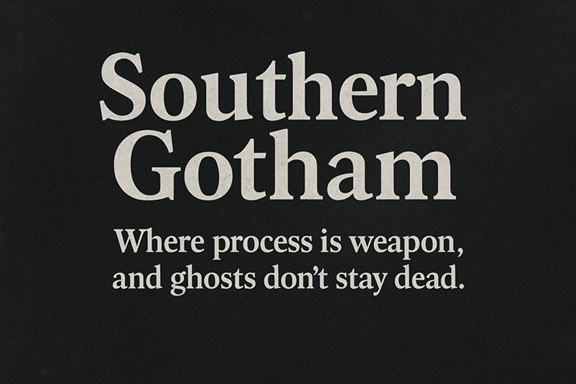Episode Summary:
This is not a trial you will find in any docket. This is the trial that should have been — a moral closing argument in defense of the Camerons, and a rebuttal to those who turned rumor into charge.
Context
Context
The neighbors’ rodent narrative collapsed; the story pivoted to a subjective claim of “fear,” and then a criminal charge was leveraged to bolster a civil injunction. This special episode puts the stakes on record.
The neighbors’ rodent narrative collapsed; the story pivoted to a subjective claim of “fear,” and then a criminal charge was leveraged to bolster a civil injunction. This special episode puts the stakes on record.
Transcript
Prosecution (Imagined)
Ladies and Gentlemen, this case is about safety. About ordinary citizens who simply wanted peace in their homes and security in their neighborhood.
The Camerons fed stray cats, which brought rodents and health risks. Inspectors may not have caught every rat, but the neighbors lived with the consequences. And when they finally spoke up, did the Camerons listen? No — they escalated. They glared, they threatened, and finally, Mr. Cameron confronted his neighbor on the sidewalk in such a way that he caused genuine fear.
Fear is not a trifle. It is real. The law protects not only from physical harm, but from intimidation, from harassment, from being made to feel unsafe. Their neighbors are not conspirators — they are victims. We ask you to affirm their right to safety and hold the Camerons accountable.
JUDGE: Thank you, Counsel. Members of the jury, you will disregard any statements not supported by evidence and focus on the arguments presented. Counsel for the defense, you may proceed.
Defense
Ladies and Gentlemen, did you hear it? Did you hear how carefully the prosecution stepped around the truth?
First: rodents. “Rats,” they said. But what did the inspectors say? No evidence. What did the records show? No infestation. That story crumbled. Yet here we are, still chasing a phantom rat. Why? Because it was never about rodents — it was about leverage and control.
Then the pivot: when property damage collapsed, the case became fear. Not broken bones, not poisoned pets, not a dime of damages — just a feeling. A claim so subjective it cannot be proven, only asserted.
But what kind of fear? Fear of a man walking his dogs on a public sidewalk? Or fear carefully manufactured by those who blocked his path, staged cameras, and engineered the very moment they now perform as terror? That is not fear. That is theater.
The law is not a weapon for vendettas. It is a shield for the vulnerable. And today, that means protecting the Camerons. If “fear” becomes enough to convict, then any whisper can destroy a life. That is not justice. That is tyranny in miniature.
I ask you not merely to acquit. I ask you to send a message — that the law belongs to the people, not the powerful. The Camerons ask not for sympathy, but for fairness. And I trust you will not be manipulated.
JUDGE: Thank you, Counsel. Ladies and gentlemen of the jury, you have heard the arguments. Remember: closing statements are not evidence, but they are meant to help you interpret the evidence you have seen and heard. With that in mind, the prosecution may offer rebuttal.
Prosecution (Rebuttal)
Defense would have you believe this is theater. But fear is not a prop — it is what the neighbors felt when confronted on their own sidewalk. Safety is not a vendetta; it is a right. The law forbids intimidation because it corrodes community. Hold the Camerons to the same standard we all live under.
Defense (Final)
Fear, without fact, is nothing at all. The rat tale failed. The damages vanished. What remains is a feeling, manufactured and amplified. The law protects people from harm, not from being contradicted. Restore reason over rumor, fact over feeling, justice over manipulation. Acquit.
JUDGE: Members of the jury, you will soon retire to deliberate. It is your duty to weigh the facts, apply the law, and render a fair verdict without fear or favor.
